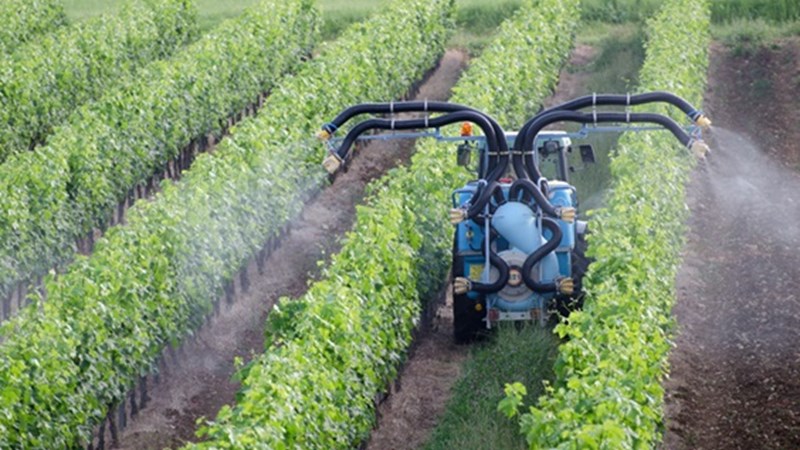Duty of care under the new Organic Regulation
March 2022
Impact of 'preventive' and 'precautionary' measures
On January 1, 2022, the new Organic Regulation entered into force. This regulation replaces the existing European Regulations 834/2007 and 889/2008 and from this moment on contains the main rules for the production, processing, trade and labelling of organic products in the European Union ("EU").
Most of the rules on the use of the 'organic production logo', 'ecolabel' and the designation 'organic' and 'ecological' in the New Organic Regulation (EU)2018/848 ('New Organic Regulation') are not new. It was, and still is, prohibited to trade a product as organic, if the product and the production method do not meet the European regulations for organic farming. A useful tool for this is the 'Bio-Checker' of the Skal foundation.
Changes
So what is new? An important change that the New Organic Regulation contains:
- a number of new definitions, for example 'preventive measures', 'precautionary measures' and 'operator', and
- a new procedure in case of suspicion of non-compliance, replacing the current procedure in Article 30 of Regulation (EU) 834/2007 and Article 91 of Regulation (EU) 889/2008.
But there are also other seemingly minor changes that can have a major impact. The Dutch regulator Skal has made clear a number of these changes per sector (e.g. storage, import and export, and crops) on their website (in Dutch).
The duty of care and the impact on your business
It is important that everyone involved in organic production, processes or products is aware of the new rules in order to prevent violations of the regulations. This is because violations can lead to enforcement by the regulator, but also that the organic product can no longer be sold as organic, with all the consequences – and damage - this entails.
There is one aspect of the New Organic Regulation that we would like to bring to your attention: the duty of care under the New Organic Regulation to take preventive and precautionary measures. Because in order to support and facilitate compliance with this regulation, operators at every stage of production, preparation and distribution must take preventive measures in order to ensure the preservation of biodiversity and soil quality, to prevent and control pests and diseases and to avoid adverse effects on the environment as well as animal and plant health. They shall also take proportionate and appropriate precautionary measures under their authority to avoid risks of contamination with products or substances which may not be used in organic production in accordance with this Regulation. They should also take such measures to avoid any mixing of organic products with in-conversion and non-organic products. This has a greater impact than it might at first sight appear. This is because of the new procedure to be followed when a positive sample for prohibited plant protection products is found in a product.
A positive sample results in a mandatory ban on the marketing of that product and an investigation by the authorities. The operator must be able to prove that a) he did not cause the contamination, but also b) that the operator has fulfilled his duty of care to prevent the risk of contamination. How exactly this should be done, and which actions are sufficient to fulfil the duty of care, is not explicitly stated in the text of the Regulation. For farmers it could include agreements with neighboring conventional farmers to prevent drift and contamination of the groundwater. For producers and traders, it is arguable that this duty of care should at least include proper administration of the raw materials supplied, random checks, but possibly also clear agreements with the involved storage and cleaning company. If you want to be on the safe side, it might even be advisable to extend your HACCP[1] protocol to include an inventory of specific risk factors that could affect the integrity of the organic product. In addition, the operator should then also map out and roll out the reasonable measures. The advantage of writing down the risks and measures extensively and in advance is that, in the event of a positive sample, the authorities can quickly be provided with the necessary information so that the blocked goods can be freed. If you cannot prove that you have fulfilled your duty of care, a positive sample for crop protection agents will, in principle, lead to decertification of the product.
Because traders and producers are dependent on their (non-EU) supplier, they are paying extra attention to this when selecting and making contractual arrangements with the supplier. For example, they could make agreements with your contracting parties about supplying and exchanging the necessary information in the event of suspected non-compliance incident. They could even go a step further and demand that suppliers also have their preventive and precautionary measures in order. After all, we already see this form of chain responsibility when it comes to food safety; extending this chain responsibility to organic products is a small step.
If you require more information on the new Organic Regulation, please contact Silvia Gawronski.
* * *
[1] HACCP stands for: Hazard Analysis and Critical Control Points









